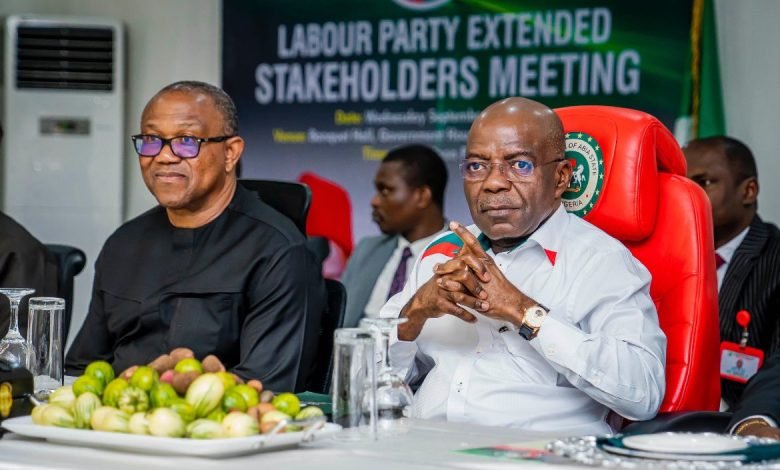Nigeria’s Labour Party has been grappling with internal conflicts since its surprising third-place finish in the 2023 general election. The little-known Party in the past had its trajectory changed with Peter Obi‘s emergence and the Obedient Movement’s takeover in 2022.
Obi, a former Anambra State governor, gained widespread support for his integrity and practical approach to governance. According to official results, he won 12 of 36 states in the 2023 presidential race and came close to third, with his supporters claiming he was rigged out.
However, the Party has faced numerous crises since then. Lamidi Apapa formed an alternative chairmanship, challenging Julius Abure’s leadership. Abure’s ongoing disputes with labor unions and the Party’s owners.
A recent court order initially set Abure aside, leading to the formation of a caretaker committee led by Nenadi Usman. But a federal court of appeal ruling restored Abure as chairman, complicating reconciliation and unification efforts.
INEC has officially recognized Abure, validating the Party’s national convention in Nnewi in April this year. But the Nigerian Labour Congress rejected Abure’s leadership, describing the court ruling as a “gross miscarriage of justice.”
Peter Obi backed an appeal of the court judgment, urging party members to remain calm. Abure welcomed the court ruling and INEC’s recognition, describing the conflict as a “family affair.“
As the Labour Party navigates its leadership crisis, many wonder whether the Party, considered the only viable alternative to the mainstream parties, will triumph or implode. Upcoming elections in Ondo and Anambra states will be its litmus test.
Comment, Like 👍, share this article, and Follow us on our social media handles.







